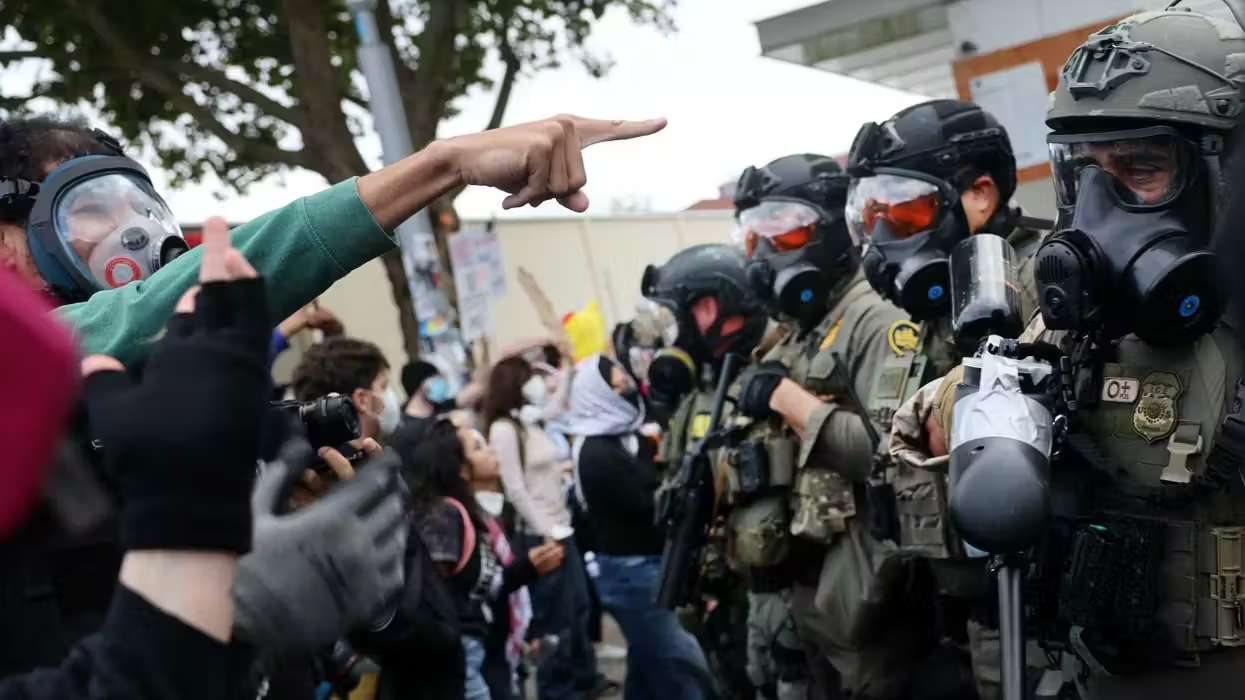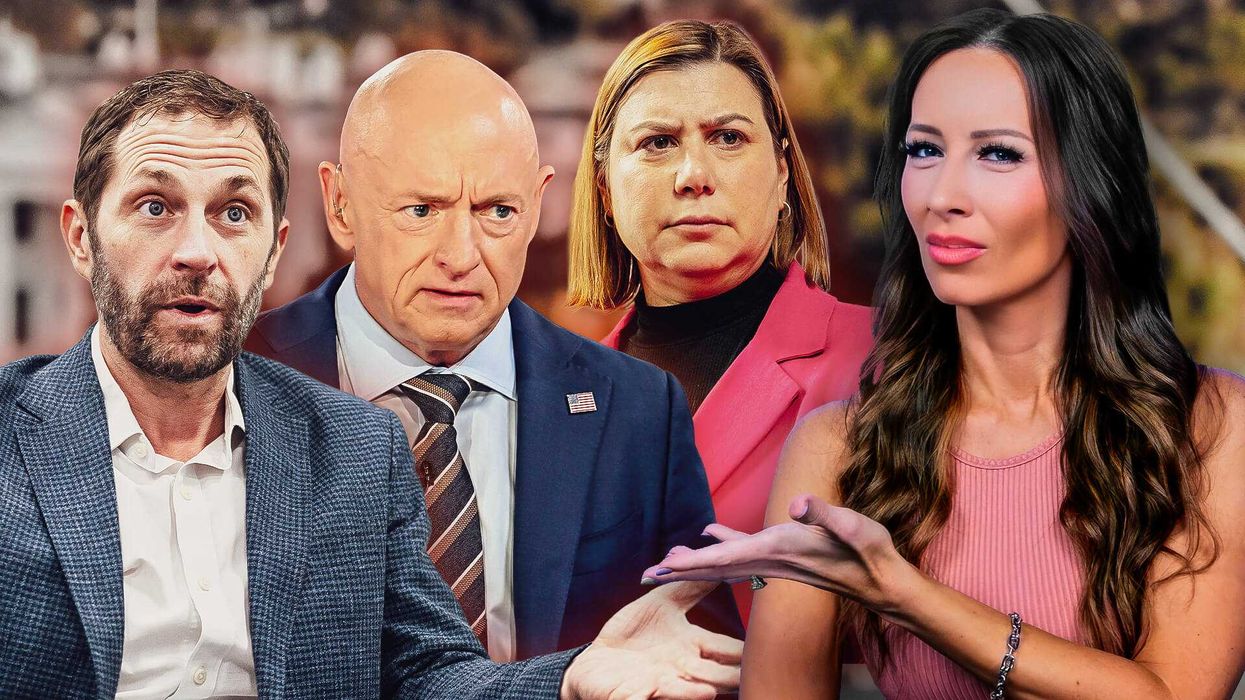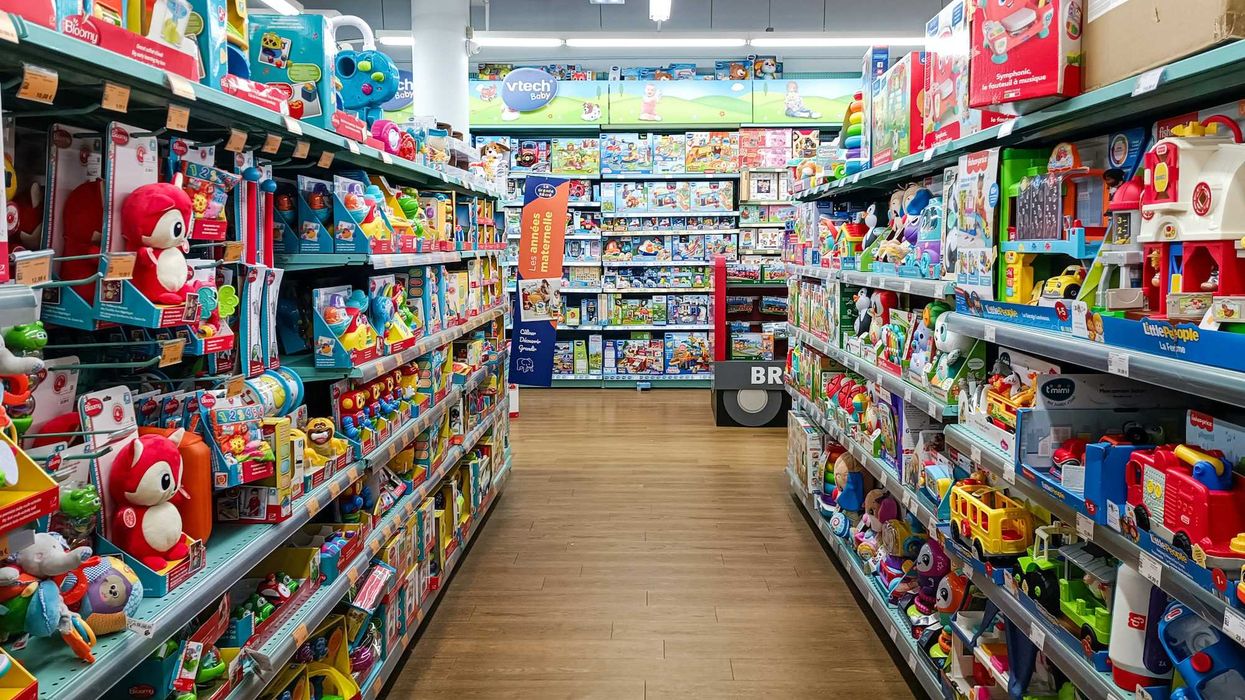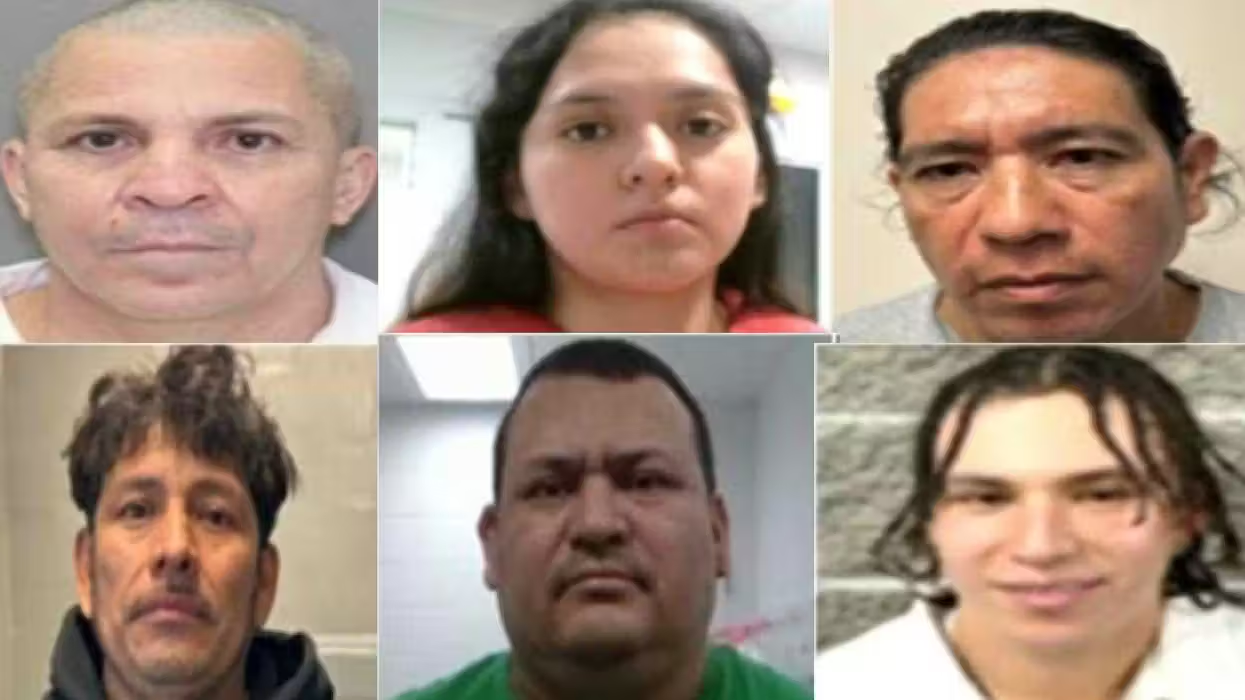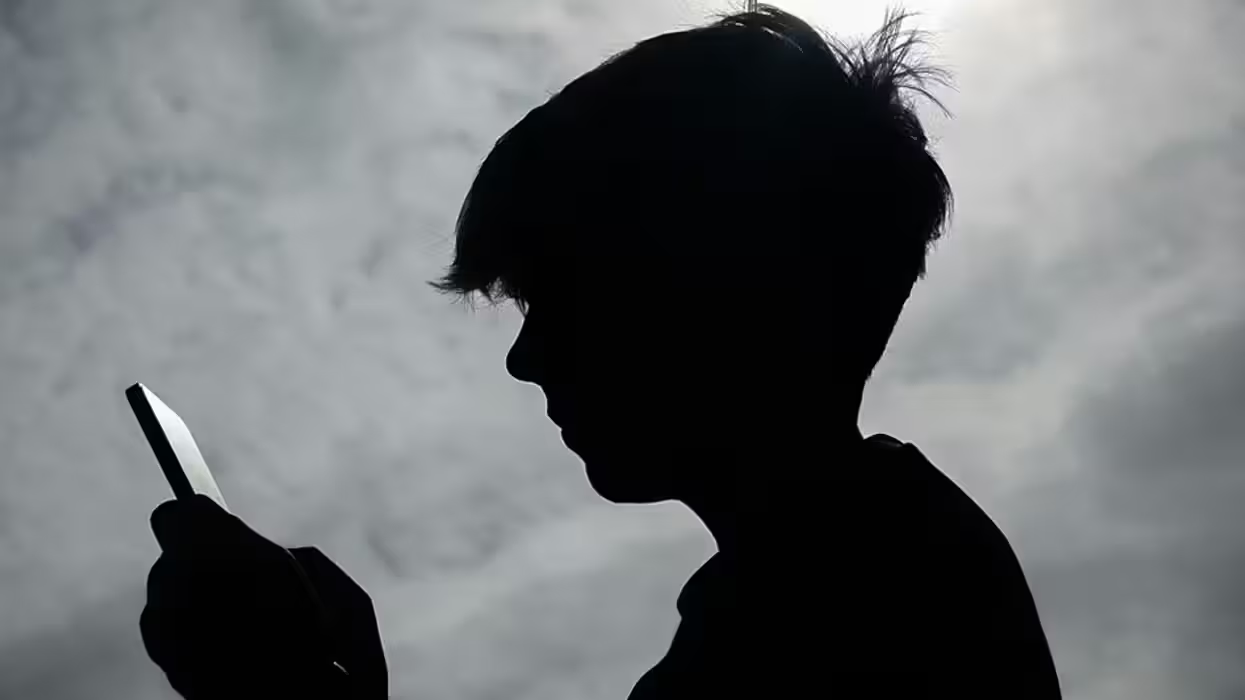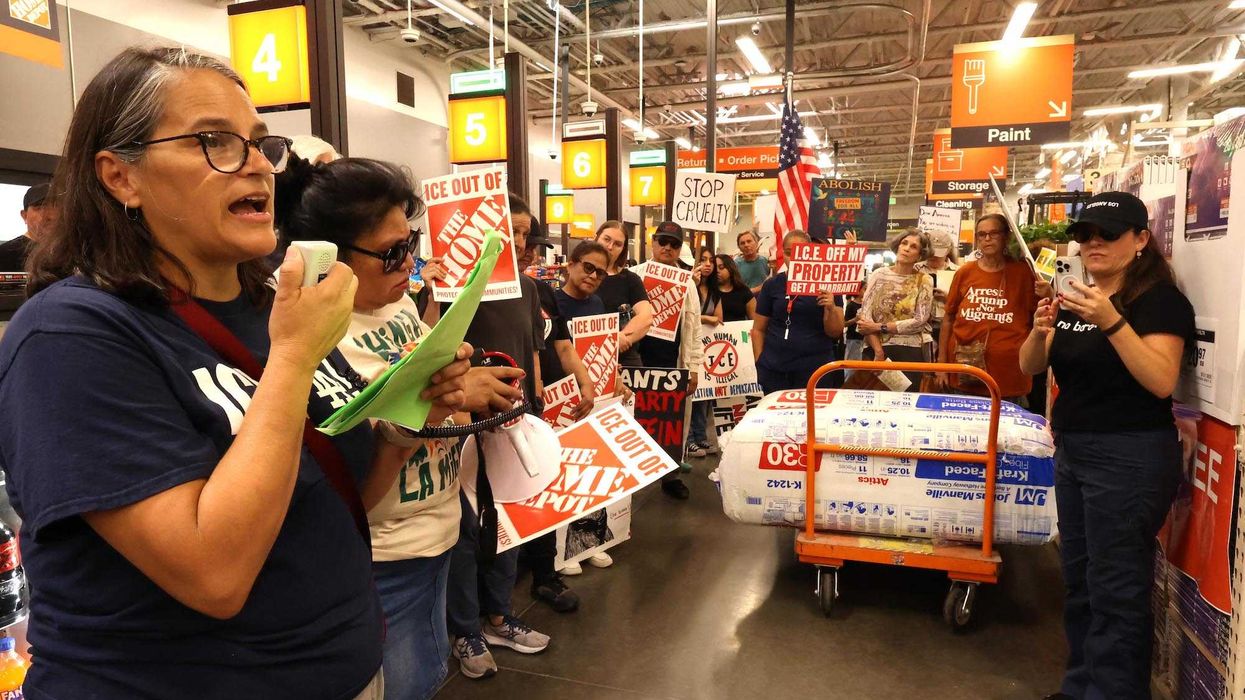© 2025 Blaze Media LLC. All rights reserved.
"Chavez is going to fight until his last breath. He doesn't know how to do anything else"
(TheBlaze/AP) -- A huge voter turnout swamped polling sites across Venezuela on Sunday as a united, well-organized opposition candidate gave President Hugo Chavez the race of his life.
Tensions rose in the bitterly divided country while an undetermined number of voting stations remained open after the official 6 p.m. closing time, with not a single result announced nearly three hours later.
Chavez, a socialist who has ruled for nearly 14 years, called on Venezuelans to await results patiently, speaking briefly Sunday night by phone during a news conference held by his campaign chief.
Electoral officials gave no indication of when they might begin releasing first returns. Exit polling is forbidden in Venezuela.
The electoral council's president, Tibisay Lucena, said any stations where voters had not cast ballots would remain open. Meanwhile, bands of red-shirted pro-Chavez motorcyclists, honking horns, roved central Caracas ensuring that such stations stayed open.
While not accusing the government of an intentional delay, challenger Henrique Capriles complained via Twitter that most voting stations lacked lines and that the government should get on with the vote-counting.
Capriles spokesman Armando Briquet demanded that all motorcycle traffic be banned. In the past, gangs of red-shirted motorcyclists chanting pro-Chavez slogans have intimidated people.
Chavez's campaign manager, Jorge Rodriguez, told reporters there were no such plans. "This country has freedom of circulation," he said at a news conference.
Capriles has united the opposition in a contest between two sides that distrust each other so deeply that some expressed concerns whether a close election result would be respected.
If Chavez wins, he gets a free hand to push for an even bigger state role in the economy, further limit dissent and continue to befriend rivals of the United States.
With a Capriles win, an abrupt foreign policy shift can be expected, including halting preferential oil deals with allies such as Cuba, along with a loosening of state economic controls and an increase in private investment. A tense transition would likely follow until the January inauguration because Chavez's political machine thoroughly controls the wheels of government.
"We will recognize the results, whatever they are," Chavez told reporters after casting his vote in Caracas. He said he was pleased by the "massive turnout."
The stakes in the country with the world's largest known oil reserves couldn't be higher.
Just as polls closed, one of several dozen young red-shirted Chavistas on motorcycles said they were ready to begin celebrating.
"Let them accept defeat," one of them, Kleiver Gutierrez, said of the opposition.
One pro-Chavez voter, private bodyguard Carlos Julio Silva, said that whatever his faults, Chavez deserves to win for spreading the nation's oil wealth to the poor with free medical care, public housing and other government largess..
"There is corruption, there's plenty of bureaucracy, but the people have never had a leader who cared about this country," Silva said after voting for Chavez at a school in the Caracas slum of Petare. "That's why the people are going to re-elect Hugo Rafael Chavez Frias."
At many polling places, voters started lining up hours before polls opened at dawn, some snaking blocks in the baking Caribbean sun. Some shaded themselves with umbrellas. Vendors grilled meat and some people drank beer.
Maria Leonis was selling CDs of Chavez's campaign theme music on a sidewalk next to a polling center. "Today I've sold about 100 CDs, just Chavez's song," Leonis said, adding that she supported Chavez because "I want to keep seeing change."
Chavez's critics said the president has inflamed divisions by labeling his opponents "fascists," "Yankees" and "neo-Nazis," while Chavez's loyalists alleged Capriles would halt generous government programs that assist the poor.
"I'm really tired of all this polarization," said Lissette Garcia, a 39-year-old clothes seller and Capriles supporter who voted in the affluent Caracas district of Las Mercedes. "I want to reconnect with all my friends who are `Chavistas.'"
Violence flared sporadically during the campaign, including shootings and rock-throwing during rallies and political caravans. Two Capriles supporters were shot to death in the western state of Barinas last weekend.
Troops guarded thousands of voting centers across the country.
Defense Minister Henry Rangel Silva said as he voted that all had been calm and he hoped that would continue. He said if any groups try to "disturb order, they should know there is an armed force prepared and equipped and trained ... to put down any attempt at disturbances."
He didn't identify the groups to which he was referring.
Chavez's opponents mounted a noisy protest in Caracas and other major cities Saturday night, beating pots and pans from the windows of their homes to show displeasure with the president - and also their hopes for change. Drivers on downtown streets honked horns, joining the din.
The 40-year-old Capriles, a wiry former governor affectionately called "Skinny" by supporters, infused the opposition with new optimism, and opinion polls pointed to him giving Chavez his closest election.
Some recent polls gave Chavez a lead of about 10 percentage points, while others put the two candidates about even.
Chavez spoke little during the campaign about his fight with cancer, which since June 2011 has included surgery to remove tumors from his pelvic region as well as chemotherapy and radiation treatment. He has said his most recent tests showed no sign of illness.
"Chavez is going to fight until his last breath. He doesn't know how to do anything else," said Antonio Padron, a bank employee backing the president. Padron expressed optimism that the 58-year-old Chavez would win but predicted a close finish: "It's a tough fight. The opposition has never been this strong."
Chavez won the last presidential vote in 2006 with 63 percent of the vote.
A former army paratroop commander first elected in 1999, Chavez has presided over an oil boom and has spent billions of dollars on social programs ranging from cash benefits for single mothers to free education.
But he has suffered declining support due to one of the world's highest murder rates, 18 percent inflation, a deteriorating electrical grid and a bloated government accused of endemic corruption and mismanagement.
While his support has slipped at home, Chavez has also seen his international influence ebb since he emerged in the mid-2000s as leader of a like-minded club of newly elected Latin American leftist presidents.
Chavez accumulated near-absolute power over the past decade thanks to his control of the National Assembly, pliant institutions such as the Central Bank and friendly judges.
Capriles said Chavez has stirred up hatred, hobbled the economy by expropriating private businesses and squandered oil wealth. He criticized Chavez's preferential deals supplying oil to allies, including one that lets Cuba pay with the services of Cuban doctors.
At one voting center in western Zulia state, in the municipality of Santa Rita, voters said some people had actually formed two separate lines - one with Chavez supporters and the other with Capriles supporters. Elsa Gutierrez, a housewife and Capriles supporter, said it was wrong to have two lines and feared it could lead to conflicts.
"This situation can't be permitted," Gutierrez said, adding that she voted for Capriles "because I want this division in my country to end."
Political analyst Ricardo Sucre said he expected the election to show "two halves, more or less even." Regardless of the result, he said, Venezuelans are likely to remain deeply divided by politics for years to come.
---
Associated Press writers Fabiola Sanchez, Christopher Toothaker, Jorge Rueda and Vivian Sequera contributed to this report.
Want to leave a tip?
We answer to you. Help keep our content free of advertisers and big tech censorship by leaving a tip today.
Want to join the conversation?
Already a subscriber?
more stories
Sign up for the Blaze newsletter
By signing up, you agree to our Privacy Policy and Terms of Use, and agree to receive content that may sometimes include advertisements. You may opt out at any time.
Related Content
© 2025 Blaze Media LLC. All rights reserved.
Get the stories that matter most delivered directly to your inbox.
By signing up, you agree to our Privacy Policy and Terms of Use, and agree to receive content that may sometimes include advertisements. You may opt out at any time.

